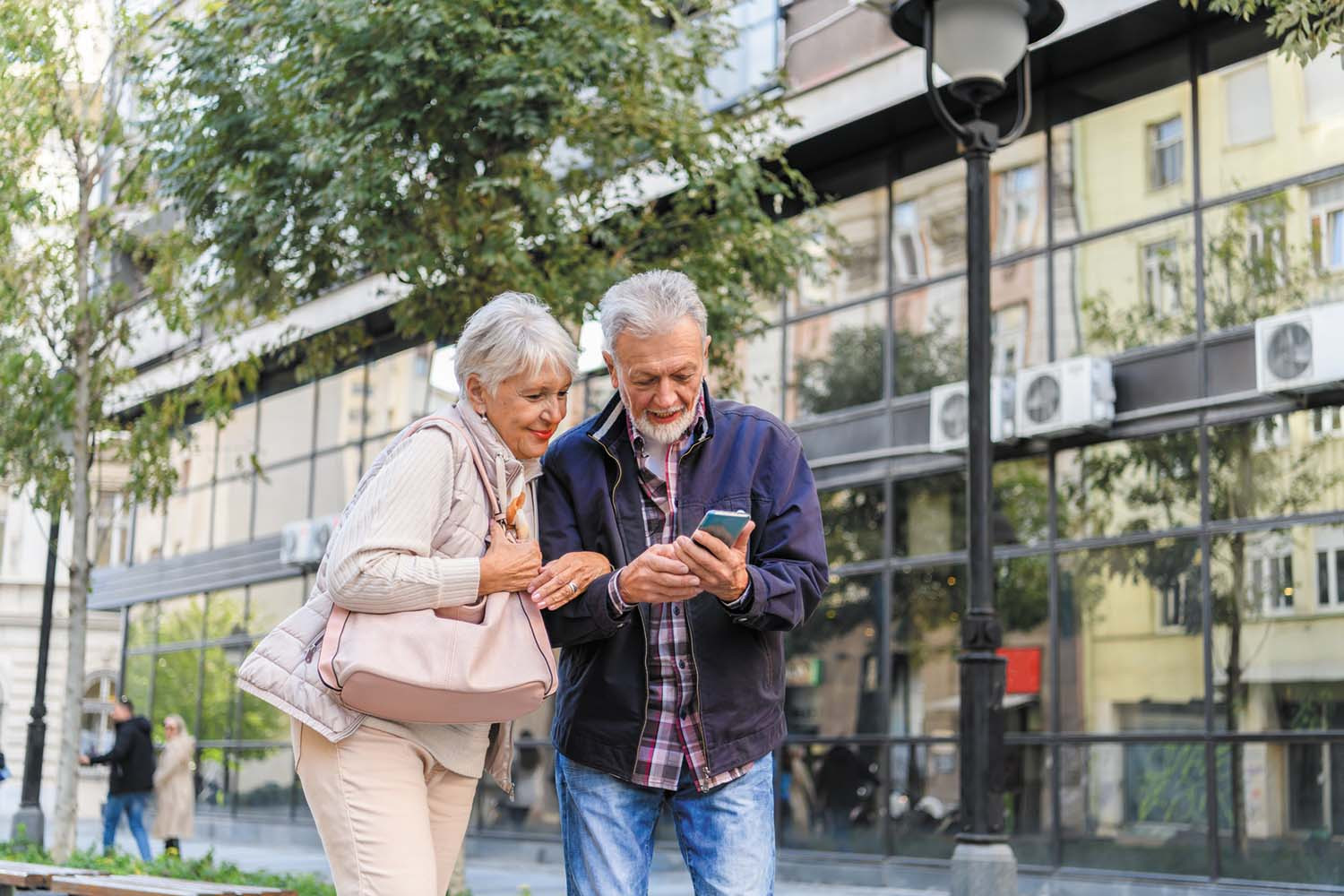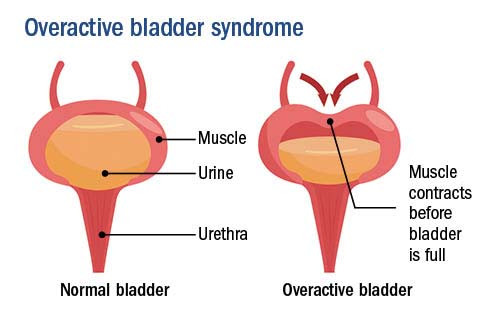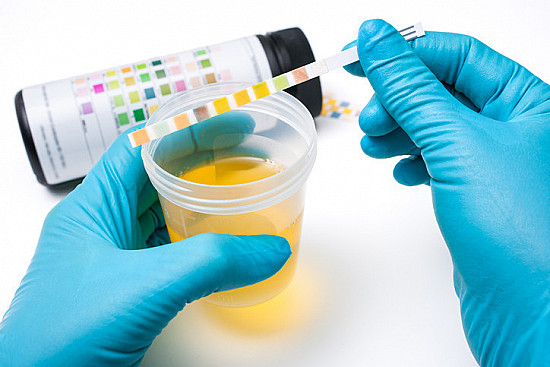Tips for traveling with incontinence
Bathroom locator apps, bladder training exercises, and certain supplies can help you navigate trips with confidence.
- Reviewed by Anthony L. Komaroff, MD, Editor in Chief, Harvard Health Letter; Editorial Advisory Board Member, Harvard Health Publishing

Traveling any distance can be worrisome and uncomfortable when you have incontinence. You might feel stressed about having an embarrassing accident and then having to deal with wet clothes. What's the best way to avoid all of that? Plan ahead. Here are some strategies that can help, whether you're going on errands across town or a trip far from home.
Avoid bladder irritants
Certain foods and drinks can irritate your bladder and cause an urgent need to get to a bathroom. Beginning the day before a long trip, try to skip anything with caffeine (coffee, tea, energy drinks, caffeinated sodas, chocolate), carbonated beverages (including sparkling water), alcohol, and spicy foods. "What you eat or drink now can affect you later in the day or even the next day. Favor plain water if possible," says Dr. Mallika Anand, a urogynecologist at Harvard-affiliated Beth Israel Deaconess Medical Center.
Practice urge suppression
Urge suppression sends a powerful message from the voluntary muscles in the pelvic floor to the involuntary muscles in the bladder, telling them not to contract. There are many different urge suppression techniques. Here's one: "When you're at home, with access to a bathroom, if you feel the sudden urge to urinate, stay seated and contract your pelvic floor muscles—the ones you'd normally squeeze to hold in urine or gas," Dr. Anand says. "After five seconds, calmly walk to the restroom. Physical therapists who specialize in such urge suppression techniques [pelvic floor therapists] can help you learn how to do this."
Consider medication
If you worry that your bladder's behavior will interfere with a trip or an important day of activities, talk to your doctor. It might be possible to take a short course of medications that ease an overactive bladder or increase bladder capacity. "Test the medication at least a month before you need it, to check for side effects, including difficulty urinating or emptying your bladder," Dr. Anand says.
Urge incontinence basicsA sudden urge to urinate can be caused by a number of problems, including bladder infections, neurological conditions, an enlarged prostate in men, or a medical condition called overactive bladder. Overactive bladder is common in both men and women as we get older. It results from unpredictable contractions of the muscle in the bladder wall. It can develop as a result of age-related changes in the bladder lining and muscle. The main symptom of an overactive bladder is a bothersome, urgent need to urinate. Other symptoms can include frequent urination (eight or more times during waking hours, and more than once during sleep) and urine leakage with urgency. Overactive bladder can be treated with medication, but that's not the first line of defense. Solutions start with bladder training, pelvic floor exercises, exercise, weight loss, and limiting fluid intake to six to eight 8-ounce cups of fluid per day from all sources, including soup. If lifestyle modifications and medications fail, then advanced treatments are available.
People with an overactive bladder experience unpredictable contractions of the muscle in the bladder wall. Image: © Guzaliia Fili/Getty Images |
Wear adaptive clothing
"Dress for success" has a different meaning when you're dealing with an overactive bladder. You need clothes with easy-to-use fasteners or elastic waistbands (to get your pants and underwear down in a hurry), clothes that can hide leaks (dark colors work well, as do long shirts that cover your bottom), and "bladder leak" underwear that's absorbent, washable, and reusable.
You might also want to put on barrier cream with zinc oxide (near your inner thighs) to ward off skin irritation.
If you plan to wear an adult diaper on an airplane, you might want to sign up for a TSA notification card. It alerts agents about your condition and that it may affect your screening. For more information, check out the TSA website.
Pack important supplies
Put together a small bag of supplies that can save the day. You might include a change of underwear or pants; an adult diaper with a natural fiber lining, such as cotton or bamboo; odor-control spray; a gallon-sized plastic bag to stash wet clothing; a towel; and a portable urinal (about $10 on Amazon).
"It's also wise to keep some pocket change handy if you're traveling, particularly outside the United States," Dr. Anand says. "Many places charge for restroom use, and you'll need the coins or bills."
Pinpoint bathroom locations
Find out in advance where public bathrooms are located, so you'll know what your restroom options are when you're out. To find bathrooms, call a particular destination, look on its website, or use a locator app. Some apps, such as Toilet Finder or Flush, map the locations of hundreds of thousands of bathrooms in North America. Other apps map bathrooms in a particular country. For example, National Public Toilet Map is provided by the Australian government and focuses on public bathrooms in Australia.
Schedule bathroom breaks
"Go to the bathroom before you leave home, and then try to use a bathroom every two to three hours, even if you don't think you need to go. Waiting any longer could risk an accident or a larger leak," Dr. Anand says.
Cut yourself a break
Don't be hard on yourself if you have an accident. After all, you're not the only person dealing with bladder urgency. It's common.
"We are seeing it at younger and younger ages now that people carry larger water bottles everywhere and start drinking coffee at younger ages," Dr. Anand says. "So just do what you can to avoid an accident. Don't let your bladder rule your life."
For more information about coping with incontinence, check out the Harvard Special Health Report Better Bladder and Bowel Control.
Image: © ProfessionalStudioImages/Getty Images
About the Author

Heidi Godman, Managing Director
About the Reviewer

Anthony L. Komaroff, MD, Editor in Chief, Harvard Health Letter; Editorial Advisory Board Member, Harvard Health Publishing
Disclaimer:
As a service to our readers, Harvard Health Publishing provides access to our library of archived content. Please note the date of last review or update on all articles.
No content on this site, regardless of date, should ever be used as a substitute for direct medical advice from your doctor or other qualified clinician.
















